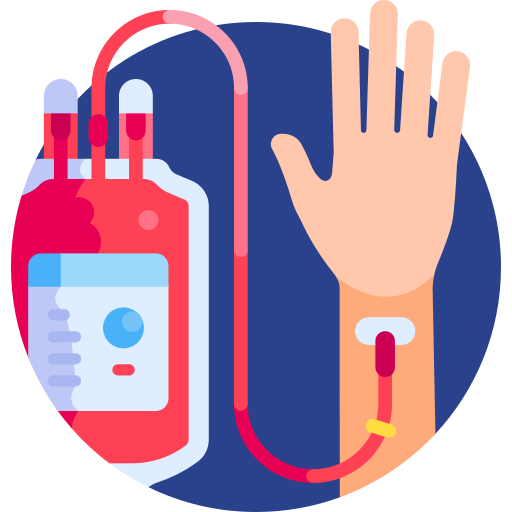Occurs in the context of pre-existing red cell antibodies in the recipient. The most life-threatening event is in the context of ABO incompatibility where IgM host antibodies result in intravascular haemolysis of transfused cells and can precipitate hypotension, renal failure and DIC. Occurs 1:25000, Fatal 1:600,000
Symptoms:
- Hypotension/Shock
- Loin pain
- Rigors
- Haemoglobinuria
- Dyspnoea
- “Feeling of impending doom”
Differential Diagnosis:
- Bacterial Contamination
- Febrile non-haemolytic transfusion reaction (FNHTR)
- Transfusion related acute lung injury (TRALI)
Management of the patient in this situation includes:
- stopping transfusion and establish new venous access if possible so no additional blood is infused through previous venflon.
- involvement of acute medical/HDU/ITU team,
- fluid resuscitation,
- consideration or inotropic and renal support, and
- management of DIC.
- if bacterial contamination cannot be excluded broad spectrum antibiotics
should be given.
ABO incompatibility suggests that there has been a transfusion-related error at some step in the process and requires immediate investigation as there may be another patient at risk (eg if switched samples). When this is suspected, the consultant haematologist on call should be informed. Where possible, other transfusions to patients in that area should be suspended until the cause is identified.
Investigations required:
- Check name on unit and patient match
- Repeat XM (pink) and serum sample to blood bank for antibody investigation (yellow), DAT, FBC, Coag screen (?DIC), Biochemistry, LDH, Haptoglobin (yellow), Urine for haemoglobinuria (plain container)
- Immediate ward/laboratory investigations to determine source of error – ensure senior medical and biomedical staff involved.
Reports: SHOT and SABRE

